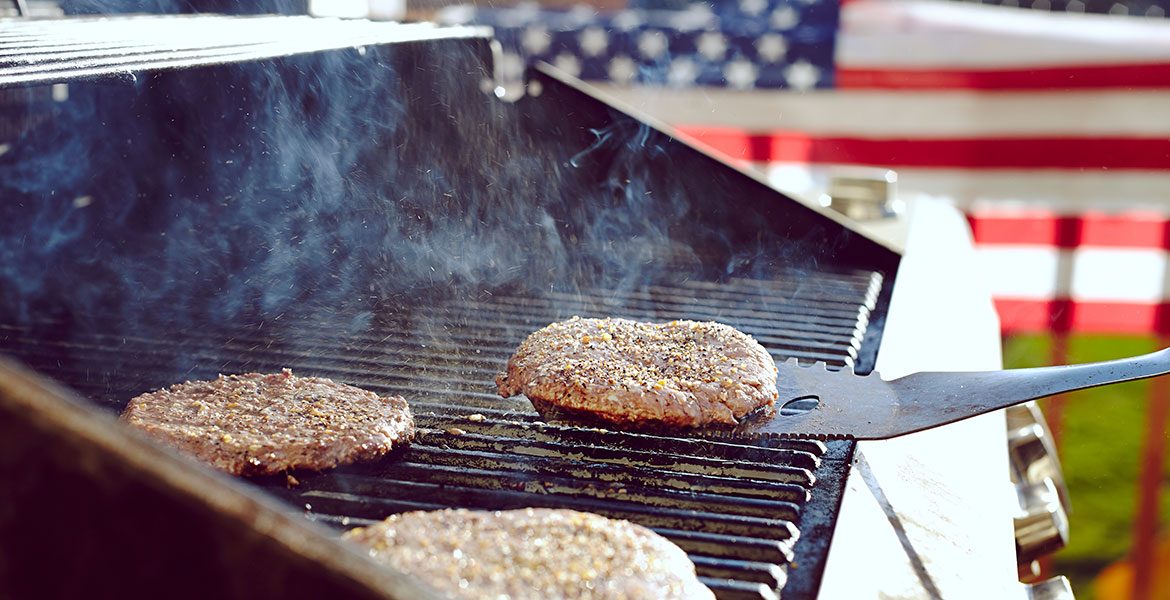
Keep food safety in mind this Memorial Day
Friday, May 3, 2019
Memorial Day weekend marks the unofficial start to summer and with warmer weather on the way, many Oklahomans will be firing up their grill and celebrating with cookouts, picnics and other activities.
Summer is typically a time of creating fun-filled memories and delicious meals; however, if the meal is not prepared properly, it could be a source of foodborne disease, said Ravi Jadeja, food safety specialist for Oklahoma State University’s Robert M. Kerr Food & Agricultural Products Center.
According to the U.S. Department of Agriculture’s Food Safety & Inspection Service, foodborne illness peaks during the summer months, as harmful bacteria tend to grow faster in warmer, more humid weather.
“Food safety isn’t just for food manufacturing plants; it is important for consumers to be mindful of food safety in the home, as well as preparing meals away from the home,” Jadeja said. “Using good food-handling practices and cooking foods to proper temperatures are just a couple of reminders to reduce the risk of foodborne illness.”
FAPC suggests the following food safety tips when celebrating this Memorial Day weekend.
Preparing foods for the grill
- Completely thaw meat and poultry in the refrigerator before grilling, so it cooks evenly.
- Never thaw raw meats on a countertop or in a sink. Thawing at room temperature increases the risk of bacteria growth at the surface of the meat, even though the interior may still be chilled.
- Marinate foods in the refrigerator, not on the counter, where bacteria can multiply.
- Discard leftover marinade. Do not use it on cooked foods as a dressing or dipping sauce because it could contain bacteria.
- Do not use the same utensils, platters and basting brushes for both raw and cooked meat. Juices from the raw meat may contaminate cooked food.
- Wash your hands thoroughly before and after preparing any food product.
Cooking food on the grill
- Use a food thermometer to make certain the meat is thoroughly cooked.
- Cook meat to proper temperatures by using the following internal temperature guide:
- Beef, pork, lamb and veal: 145 degrees Fahrenheit (Allow 3 minutes to rest before consuming).
- Ground meats: 160 degrees Fahrenheit.
- Chicken: 165 degrees Fahrenheit.
Picnic cookouts and barbecues
- Use an insulated cooler filled with ice or frozen gel packs. Frozen food also can be used as a cold source.
- A full cooler will maintain its cold temperature longer than a partially filled one. When using a cooler, keep it out of the direct sun by placing it in the shade or shelter.
- Avoid repeatedly opening the cooler so your food stays cold longer.
- Foods that need to be kept cold include raw meat, poultry, seafood, deli and luncheon meats, sandwiches, summer salads, cut-up fruit and vegetables and perishable dairy products.
- Keep foods such as cooked hamburgers and hotdogs, condiments, cheese slices and others, covered with a clear cover or wrap to prevent flies from landing and spreading their germs.
Storing and eating leftovers
- Leftovers should be stored in the refrigerator within 2 hours after cooking is complete.
- Leftovers should be divided into smaller portions and stored in shallow, airtight containers. They should be eaten within 3 to 4 days.
- If large amounts are left, consider freezing for later use. Do not wait until the leftovers have been in the refrigerator for several days to freeze. Frozen leftovers should be eaten within 6 months.
- Reheat leftovers to 165 degrees Fahrenheit, and never taste leftover foods that look or smell strange.
FAPC, a part of OSU’s Division of Agricultural Sciences and Natural Resources, helps to discover, develop and deliver technical and business information that will stimulate and support the growth of value-added food and agricultural products and processing in Oklahoma.
For more information about food safety, text FAPC to 80802 to download the free FAPC Connect app or visit www.fapcconnect.com.
MEDIA CONTACT: Mandy Gross | 405-744-0442 | mandy.gross@okstate.edu
